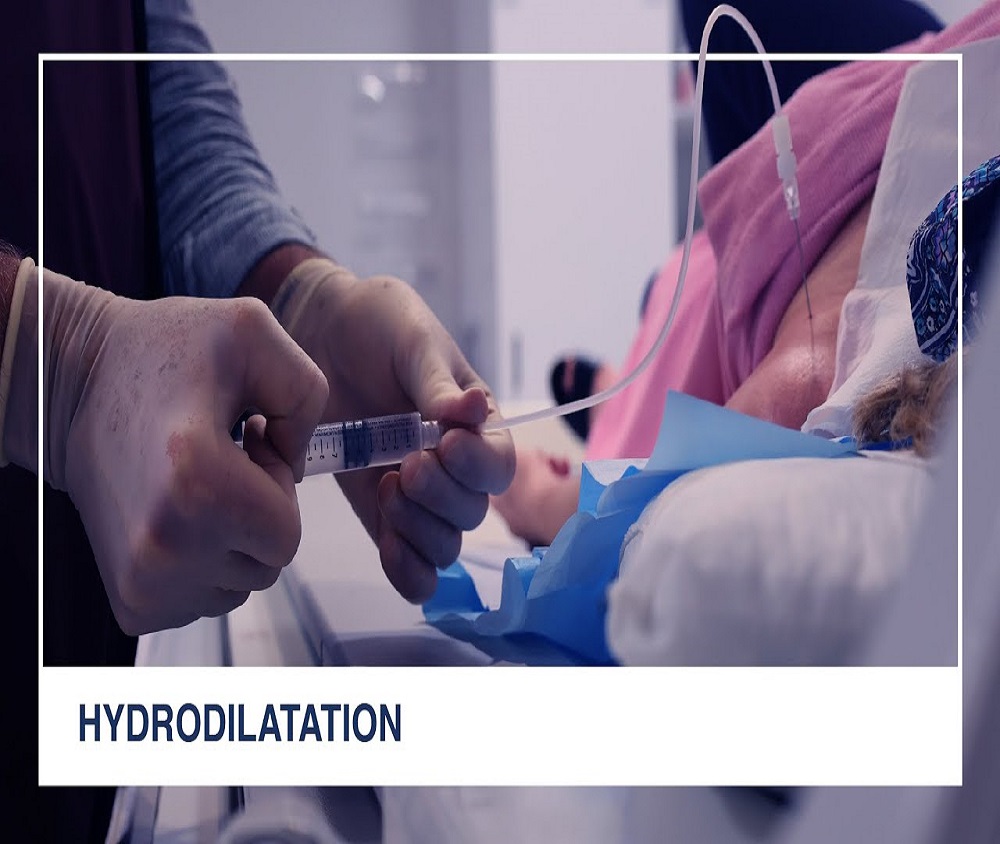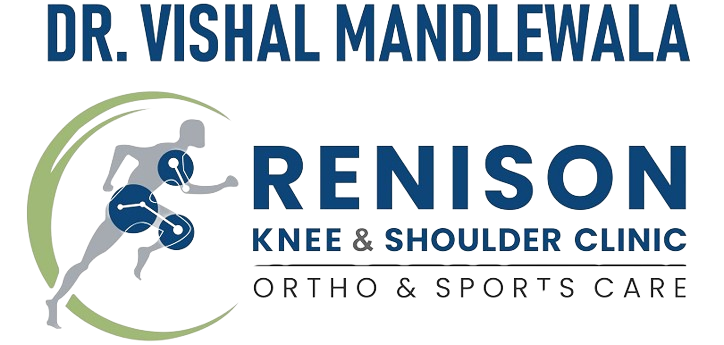
-
Posted By Dr.VishalMandlewala
-
-
Comments 0
1.Stretching of the capsule: A sterile solution, typically consisting of steroid, local anaesthetic and saline (or water for injection), is injected into the joint capsule. This fluid distends the capsule, helping to break down the adhesions and scar tissue, increasing space for movement.
2.Reducing inflammation: Corticosteroids, often referred to as steroids, are usually used alongside the water solution. Steroids help to reduce inflammation within the joint, alleviating pain and discomfort.
Who is a Candidate for Hydrodilatation?
Hydrodilatation is not suitable for everyone with frozen shoulder. Here are some factors a doctor might consider when recommending this procedure:
- Severity of symptoms: If pain is manageable and movement isn’t severely restricted, other conservative treatments, such as physiotherapy, might be preferred initially.
- A hydrodilatation tends to be used when the patient struggles to place their hands behind their head due to severe stiffness and tightness or has severe limitation and asymmetry when reaching behind their lower back.
What to Expect During a Hydrodilatation procedure:
A Hydrodilatation is performed by Dr. Vishal Mandlewala at various hospital in South Gujarat.
Before the procedure: Dr. Vishal Mandlewala will discuss benefits of hydrodilatation and answer any questions you may have. You may be advised to stop taking certain medications beforehand and the doctor will run through a written consent form and preoperative Investigations.
During the procedure: General Anesthesia with Shoulder Block will be given in Operation Theatre. Then, Spinal needle will be injected in shoulder joint under C arm guidance. After confirming needle position 60-70 ml of Normal Saline will be injected. This fluid distends the capsule, helping to break down the adhesions and scar tissue, increasing space for movement. Steriods along with local anesthesia help to reduce inflammation within the joint, alleviating pain and discomfort. Full Shoulder movements are confirmed after the procedure.
After the procedure: You will have to stay 1 day at hospital. Dr. Vishal Mandlewala will provide specific instructions on pain management, applying ice, and initiating physiotherapy exercises for 1 month to maximize the benefits of the procedure.
Recovery and Next Steps
Following the procedure, your night pain will reduced drastically and significant improvement in shoulder movements. Physiotherapy plays a crucial role in helping to regain a full range of motion and preventing stiffness from recurring. Your therapist will guide you through gentle exercises to stretch and strengthen the shoulder joint.
Physiotherapy: Physiotherapy protocol of Renison Knee and Shoulder Clinic by Dr. Vishal Mandlewala focuses on improvement shoulder mobility and strength.
Arthroscopy Surgery: Surgical intervention is rarely important however can be considered if different treatments fail to provide a remedy. The arthroscopic surgical operation, a minimally invasive technique, may be achieved to remove scar tissue.
In conclusion, a frozen shoulder is a painful circumstance characterised by way of shoulder aches and stiffness that influences everyday sports. While it can be challenging to manipulate, diverse remedy alternatives are available to alleviate symptoms and enhance shoulder function. If you observe you have a frozen shoulder, it’s vital to consult with a healthcare expert for the correct prognosis and treatment steerage.
Conclusion
Hydrodilatation is unique , innovative and advance minimally invasive approach to treating frozen shoulder. By stretching the joint capsule and reducing inflammation, this procedure can significantly improve pain and restore movement. If you are experiencing symptoms of frozen shoulder, discuss your treatment options with Dr. Vishal Mandlewala at Renison Knee and Shoulder Clinic.














